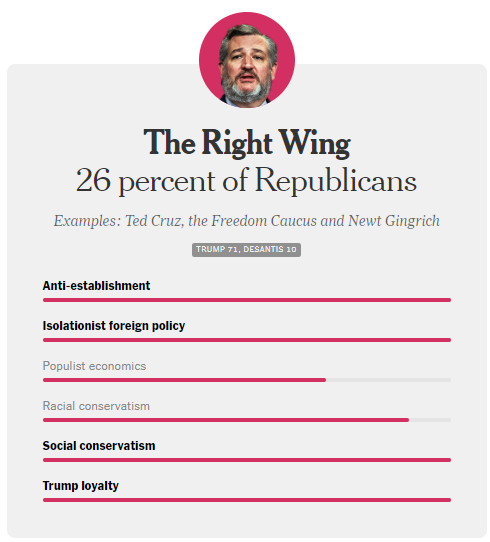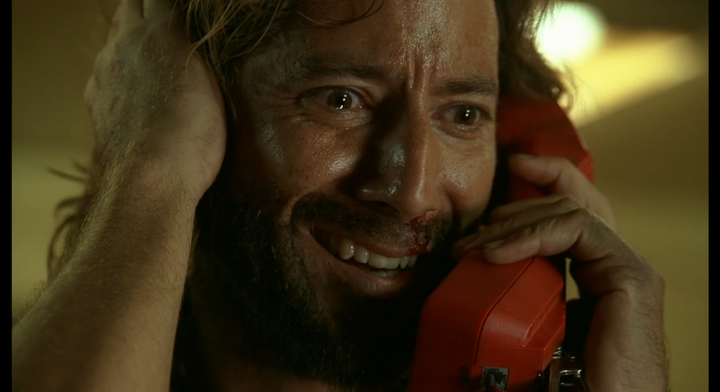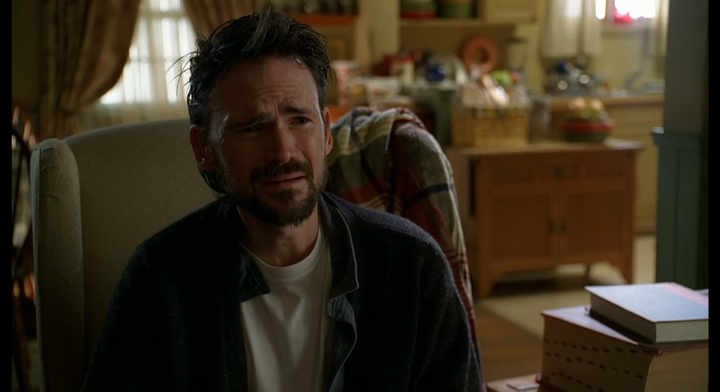Hatred Launderers
Hatred isn't only found on the fringe. It's also popular and mainstream. Exploring the canard of saving opposition to hate for the "real racists" to arrive.

Well, it’s almost Halloween. I’m reminded of how in college, a guy I knew who belonged to the Young Republicans would dress up as the same thing every Halloween.
He’d dress as Adolf Hitler. Mustache and everything.
At the time, I chalked it up to a bad joke. I mean, obviously he thought Hitler was bad, so obviously he was joking. Everyone knows Hitler is bad, so what a hilarious and random thing it was for him to do, was the clear implication—if, that is, you happen to own a replica of Hitler’s uniform, for some reason, which he must have, unless every year he rented it. Am I saying he was a Hitler fan? Of course not. What a dangerous thing it would be to suggest such a thing, to devalue the evil of Hitler by applying it to some regular fellow—a regular fellow who dressed up as Hitler every Halloween. I guess you would have to say it was a lapse in judgement.
Speaking of Hitler, this week at Michigan State’s football stadium, just down the road from me, a massive picture of Adolf Hitler showed up on the big board, part of a trivia game with content from a 3rd-party source. People found it to be in bad taste, to say the least. MSU issued an apology. They’ve terminated their use of the content provider. It was probably just a lapse in judgment.
Let me come back around to that.
Last month I talked about my bully, and I made some observations about bullies based on the story I told about him. Read about it here if you missed it and want to catch up.
The takeaways I want to focus on are that a) a bully operates on a sliding scale of permission, and b) they are always seeking to move the margins of permission out. A bully will do what they can get away with, in other words, but they’ll also test to see if they can get away with more. This should indicate to a perceptive observer that c) what a bully always wants is to inflict more harm than whatever amount of harm they are currently inflicting.
This suggests that in any sort of system that is oriented to permit bullies to do as they please, the boundaries of this permission will expand as far as the bully wants to push them. As a totally unrelated aside, our House of Representatives is completely shut down right now because it is controlled by the Republican party, a far-right extremist outfit whose most far-right extremist fringe won’t accept anyone as Speaker that might be caught performing even the most basic acts of governance. What they demand instead is somebody who will carry out the total demolition of governance, in order to inflict the most harm possible on the most people possible. And the candidates who they find most acceptable, like Steve “David Duke without the baggage” Scalise or Jim “Insurrectionist who covered up a massive sex abuse scandal” Jordan, can’t get enough votes from the rest of their caucus, even though—or perhaps because—their supporters have threatened reluctant swing voters and their families with murder. And, having failed to do something as basic as choosing a leader, the Republicans are doing what bullies always do, which is to blame somebody else for their own actions, and there are plenty of people and organizations who, oriented toward letting bullies do whatever they want, are more than willing to help them do that.
But where was I? Ah yes. I was talking about things I’ve written recently.
Last week I talked about how hatred isn’t really fringe, even though we experience its worst effects at the fringe—at the margins of permission, you might say. But inside the fringe is hatred, too—a hatred made respectable and popular by normalization, well within the boundaries of what is acceptable.
So today I’ll observe that the further out you push the margin, the more of what is actually extremist hate becomes respectable and popular, rather than fringe—as, I’d argue, we can very clearly see today.
It’s been a heavy few weeks for me, and I bet for you, too. I know it’s been a heavy few weeks for Jewish people and Muslim people in my orbit, and also I’d daresay around the world. In Chicago, a little Palestinian boy was brutally stabbed to death by his landlord who said that all Muslim people must die, and this occurred in a context that is a rising tide of mostly right-wing Islamophobia and state violence enacted against Palestinians over the last decades. Also, a Jewish interfaith activist and synagogue president in my home state of Michigan was brutally stabbed to death, and while the suspected motives have not been released by police, the context for her murder is a rising tide of mostly far-right murderous antisemitism over the last decades. And by no means are these isolated incidents. Every day brings more examples, and more, and more. If one is Muslim or Jewish right now, I think it is a terrifying time, as more and more people become increasingly convinced that hatred and violence toward Muslims or Jews represents the best solution to the hatred and violence they have decided Muslims or Jews represent.
I also know there are people—far too many—who are oriented toward violence, encouraged by massacre generally, because massacre represents the world that makes sense to them, so even a massacre that they think is awful reinforces their view that the sort of massacre they find necessary is justified. I imagine that for people with such an orientation, these last weeks have been, if not happy, at least validating, as more and more people have found reasons to defend some massacre or another as an acceptable outcome.
Bullies are putting up big wins lately, it seems.
Kurt Vonnegut is a spiritual teacher of mine, and he once said we are what we pretend to be, so we must be careful about what we pretend to be.
Let me add a corollary: we are what we find acceptable, so we must be careful about what we find acceptable.
So now let’s talk about the United States’ fleet of well-paid professional hate launderers.
Please forgive this brief interruption.
Maybe you've noticed that it's getting harder to truly know what's going on these days. Legacy media—controlled by corrupt billionaires and addicted to the false equivalency of balance rather than dedicated to the principle of truth—has failed us. I am recommending that if you have money to do so, you donate and subscribe to independent sources of information instead. This week I'm suggesting you support your nearest alt weekly. As Radley Balko says, "alt weeklies have a storied history of breaking big stories long before daily newspapers catch on (and then report and take credit for them). They’ve also been proving grounds for excellent journalists who may have not had the connections to break into the profession."
We now return you to the essay in progress.
Richard “Banana Fanna Fo” Hanania is an open white supremacist who has managed to carve out a lucrative career as a professional hate launderer, by which I mean that he is paid to say some rather mainstream things with some very racist things mixed in. He usually does this in a way that just skirts the safe edge of what mainstream conservative politicians and billionaires and other engines and captains of influence are willing to promote in the interest of unbiased and fair-minded airing of “both sides.”
In my opinion Hanania’s services are valuable to these entities because they make the racist things he says as mainstream as the other things, allowing these politicians and billionaires and so forth to gradually expand the boundaries of what levels of bigotry are acceptable, and so Hanania is a rising star with them, and a mainstream star in general. For example, in addition to being a darling of the Substack organization, Hanania has written a racist screed and HarperCollins put it out as a book, and he has been associated with Columbia University and the University of Texas, and respectable white supremacists like Senator J.D. Vance and Elon Musk are fans, as is Peter Thiel, who said of him “Hanania shows we need the sticks and stones of government violence to exorcize the diversity demon.” And centrist extremism launderer Matt Yglasias has noted that he finds him to be clearly quite racist but also an important voice due to having written some very good pieces, and on and on. See how the wash comes out so clean?
Well you’ll never guess what, but this professional racist also used to write for overtly white supremacist publications, issuing opinions that land well on what is currently the unsafe side of racism, which made these instances of racism a scandal in a way that his normal ongoing racism hasn’t been, and so his rising star is in danger of being tarnished by “cancellation,” which I am told is the most dangerous thing that can possibly happen to anyone in a free society, provided that the cancellation is something vaguely reputational happening to a racist bully rather than something fatally violent happening to for example a Black teenager who might once have committed a misdemeanor.
The exposure of Hanania’s unacceptable racism engendered the same cultural/media reaction these things always do, which was a quick and instinctual effort to rehabilitate him before he had even hinted he might do anything rehabilitative. This was accomplished by framing cancellation of a rising racist media star as a far more dangerous thing than the rising media star of an open racist, and then by positing as an established and obvious given the questionable idea that anyone interested in ending racism really ought to leave open off-ramps to redemption for racists rather than shutting them down forever. Hanania wrote an apologia of sorts on hatred-laundering site Quillette, and a lot of the usual launders of hatred launderers made a show of finding this compelling, and he was back off to the races again. See how the wash comes out so clean?
It might be worth looking at some things Hanania said that got him into such a pickle.
He suggested that Black people are inherently more given to violence, repeatedly equating blackness to criminality, writing that neighborhoods inhabited by majority Black populations are “uninhabitable.”
He wrote against the Civil Rights Act as a sort of original sin of the last century.
He wrote “We need more policing, incarceration, and surveillance of black people. Blacks won’t appreciate it, whites don’t have the stomach for it.”
And there’s more—a lot more.
Pretty bad, huh?
Actually, I must confess—I tricked you just now.
Those aren’t the things he said that got him in trouble. The things Hanania said back then were even worse—just unequivocally sickening openly Nazi stuff without the diaphanous hankie of barely plausible deniability he uses now. You can read about it here if you like, but it’s full of a longing for a “white awakening,” and also hatred for disabled people, women, Jewish people, and anyone he didn’t deem white.
No no, everything I listed above are the things he’s saying now—the things Hanania says that are currently on the respectable side of the border, which I’d argue tells us how far out the margins of permission have been pushed, in these days when a self-proclaimed David Duke can run for Speaker and almost win.
What Hanania is saying these days only points toward the Nazism rather than trafficking in it directly; not saying the most terrible thing, but only saying a lot of other things that are nearly as terrible, and are perfectly aligned with all of the most terrible things he said back then, and all of this has become so normalized that when the New York Times created profiles of different types of Republican voter, they included the metric “racial conservatism” without defining the term, which tells me that they trusted us to understand what it meant.

And I single out Hanania here, but I could have picked someone else. I could have picked fellow hatemonger Chris Rufo, who is remarkable for openly disclosing his intentions to rhetorically tie trans and gay and Black other oppressed minorities to the idea of extremist violence, so that they can be understood to represent violence, specifically so that more violence can be enacted against them. We could be talking about many professional hatred launderers, hundreds of them, and thousands of even more respectable launderers of their laundering, all of them stretching the boundaries of what is acceptable far past any acceptable standard of decency.
We might wonder why this should be.
I’d like to show you a tweet that I think gives us a hint.
Another quick interruption to scroll quickly past before you continue the essay.
The Reframe is me, A.R. Moxon, an independent writer. Some readers voluntarily support my work with a paid subscription. They pay what they want—more than the nothing they have to pay. It really helps.
If you'd like to be a patron of my work, there's a Founding Member level that comes with a free signed copy of one of my books and thanks by name in the acknowledgement section of any future books.
The tweet in question came from Aaron Sibarium, who is an anti-trans agitator and a writer for a far-right “newspaper,” among other things. He was writing in response to the revelation of texts written by Ron DeSantis operative Pedro Gonzalez, which were filled with racial slurs and anti-Black and antisemitic invective. In case you didn’t know Ron DeSantis is the fascist governor of Florida, whose presidential campaign staff released an official campaign video containing Nazi imagery, and that’s the sort of thing that once upon a time might have ended a politician’s candidacy if not their career, but now it’s the sort of thing that happens to conservative politicians all the time these days, and so the campaigns and the politician just keep chugging along. We might believe the story that this was just an error, except that Nazi imagery is in no way misaligned with DeSantis’ political rhetoric or policy goals, nor is DeSantis in any way misaligned with what is now mainstream Republicanism—an organization whose leaders issue death threats to members for insufficient loyalty, in other words.
Anyway, Gonzalez laundered himself the same way that Hanania did; youthful indiscretion, not a real representation of true beliefs (even though the observable facts of his present career show somebody still clearly aligned with exactly those beliefs); slurs and other hate speech were just jokes between friends, etc. etc.
Here’s what Sibarium said in reference to the pickle Gonzalez had got himself into:
Whenever I’m on a career advice panel for young conservatives, I tell them to avoid group chats that use the N-word or otherwise blur the line between edgelording and earnest bigotry. I’m often asked afterwards why I made a point of saying so. This is why.
What Sibarium is presenting here is a very common idea—a very mainstream idea—that there is real earnest hatred, and then there’s just fuckin’ around hatred, and we mustn’t waste our opposition to hatred by spending it on those things that are only accidental, or only pretend and play and feints toward hatred, because then we won’t be able to oppose real hatred when it arrives—as if opposition to hate is a precious substance, one that we might expend if we were to utilize it too immoderately.
Similarly, we’re never to refer to racism as racism, or fascism as fascism, because doing so will water down the alarm when the worst fascism and the worst racism finally appear. The thing to do is to immediately find an exonerative explanation for the lesser hatred, in order to rehabilitate the hater back into decent society as soon as possible.
And I’m reminded of Laura Ingraham giving a clear sieg heil at the 2016 Republican National Conference, and the way it was immediately explained away as not being the real thing because nobody could do such a thing and keep their job, even though that is exactly what she did. I think of the rash of conservative media douchebags posing in pictures over the last decade, flashing the “OK” sign in such a way that the “W” of the white power sign is clearly visible, wearing shit-eating grins, daring us to say they are doing what they are obviously doing. And I think about the never-ending string of white supremacist and Nazi memes and policies and talking points that keep surfacing, all the hidden instances of 1488, all the little signs and winks and hints that all might say “look what is acceptable now” if that’s what you want to say to certain people, or might say nothing at all if that’s what you decided you wanted to say. And I remember the recent handwringing by a journalist over a leading Democrat calling Jim Jordan an insurrectionist, even thought that is exactly what he is. And on and on and on. See how the laundry comes out so clean?
We can’t ever oppose the hatred before us. We must always construct some hypothetical future worse hatred, and use the threat that it might someday appear before us, as a reason to refuse to oppose the real hatred that’s actually before us.
We can’t oppose the bad we see, because it isn’t the most bad thing.
And if anybody ever came along that did embody the most bad thing, then we must either imagine something even worse for us to hypothetically oppose should it ever arrive, or else recognize that these infractions were a long time ago, and so we ought to rehabilitate the one who infracted, which mostly means keeping their reputation undamaged no matter what.
We can’t speak out when they come for the socialists, because then someday if they come for the trade unionists, we will have already spoken. Nor can we speak out when they come for the trade unionists, because then, someday, if they come for the Jews, we will have already spoken out; as if speaking out were a rare commodity which will be gone once expended, rather than a muscle to be exercised.
All of this completely ignores—we might be tempted to say deliberately ignores—how bullies operate. The bully operates on a sliding scale of permission, and always starts with the joke to see how the joke goes, and then tries maybe a little something else, and then a bit more, and a bit more, and we’re told that as long as it isn’t the worst thing imaginable, then we have to keep our powder dry, extend benefit of the doubt.
I wonder: If you own a Hitler uniform as a gag, where do you keep it when it isn’t Halloween? Is it in your closet all year? Maybe you put it in storage. Is it still as funny when it’s hanging in there?
Is a picture of Hitler on the scoreboard of a state university stadium just an oversight? Probably so. But maybe not. Who can say? We might wonder: why ask that question for college football pregame trivia? Was it somebody’s idea of a joke? Was it an intentional signal of permission?
I can’t ever know, not really. One can’t prove intentions.
And, because I can’t ever prove, I have to assume best intentions about every approving signal of fascism, even as fascism becomes more and more mainstream, even as hate becomes more and more normal and allowable, apparently without anybody ever intending it—because if I register that the actual signs of hatred I see are unacceptable to me, it might weaken my hypothetical future opposition to the worst possible hatred imaginable, and I, who have only ever excused every other lesser hatred, will be sure to oppose the greatest possible hatred, is what I suppose I expect everyone to believe about me.
I guess I’ll be well rested.
This brings me back to Richard Hanania and the reflexive institutional move to rehabilitate him without his having done anything rehabilitative, the instinct to forgive him before he’s repented, all of which seems to say less about a collective desire to racists off-ramps to leave their hatred behind, and more about a collective desire to build on-ramps so that racists and other hatemongers can easily join all of us in the daily traffic of our lives.
What are Hanania and all the rest of them and their little games, after all, if not a bullying’s institution’s probing whiskers?—the toe over the line, the test at the margins, the way to determine that the harm that was unacceptable yesterday might be acceptable today? They’re the way that people who want hatred to rule push back the boundaries of what is acceptable.
And it’s how we know we live in a society that is oriented toward accepting bullies—precisely because we find them acceptable. We allow them. We license them to exist in ways we do not license the people they’ve already told us they intend to harm.
The way you push the bully back is by revoking permission, not once it’s gone too far, but every time permission is tested, and then revoking permission for bullying things that had previously been permitted. It’s by drawing clear lines that harm is not acceptable, and then—crucially—by not accepting it.
The reality is, opposition to bullying is not a rare substance that can be depleted, and treating it as if it were one is a strategy that seems designed not to ready us to oppose the “real” hate when at last the worst possible thing imaginable arrives, but to actively assist the worst possible thing to arrive unopposed.
Here it comes, wearing a smile, respectable and normal, perfectly laundered.
It’s only joking, if you ask.
It’s deadly serious, if you don’t.
The Reframe is totally free, supported voluntarily by its readership.
If you liked what you read, and only if you can afford to, please consider becoming a paid sponsor. If you'd like to be a patron of my work, there's a Founding Member level that comes with a free signed copy of one of my books and thanks by name in the acknowledgement section of any books I publish.
Looking for a tip jar but don't want to subscribe?
Venmo is here and Paypal is here.
A.R. Moxon is the author of The Revisionaries, which is available in most of the usual places, and some of the unusual places, and the essay collection Very Fine People. You can get his books right here for example. He is also co-writer of Sugar Maple, a musical fiction podcast from Osiris Media which goes in your ears. My friend my friend he’s got a wife.




Comments ()